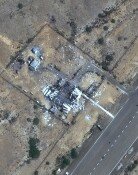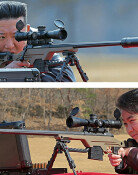Korea-Japan Undersea Tunnel
A report released Friday by the Joint Research Committee for a New Korea-Japan Era, which comprises 26 members from both countries, shows both the significance of bilateral ties for the future and conspicuous limitations. The two countries must join forces to tackle global issues, going beyond mutual cooperation as leading nations in Northeast Asia sharing the common values of democracy, market economy and human rights. The two neighbors are also parties to "a special relationship" that must share clear-cut recognition of the past and present to build future-oriented cooperation. Considering that this year marks the centennial anniversary of Japanese annexation of Korea, Japan as the past victimizer must present a new recognition of the past completely different from what it has insisted thus far.
The committee`s recognition of Japans forced annexation of Korea lags far behind that expressed in a joint statement made by intellectuals from the two nations in May. At the time, 104 Japanese scholars joined 109 Korean counterparts in declaring, The annexation treaty was an unjust and unfair act committed by Japan through suppression of violent resistance via military power on the emperor of the Korean empire to populists." They also announced a joint statement saying the treaty was fundamentally void, urging Tokyo to accept this historical truth. The number of intellectuals who have joined the initiative has increased to 560 in Japan and 590 in Korea.
The new report, however, says, Japan annexed Korea by suppressing the Korean people`s opposition to the treaty by use of military force. It seems a mere sound bite when they say, By shouldering the heavy burden of the past, let us see a bright future beyond the horizon, while denying the clearly illicit act Japan committed. How can one claim to never forget things of the past yet fail to clearly recognize the truth of the past? Japans failure to recognize the annexation treaty as an illegal treaty signed under suppression and threat" means the country is not genuinely atoning for its past at the national level.
The 21 agenda items the committee singled out could also spawn dispute among the people. The inclusion by experts from the two countries of the pursuit of a Korea-Japan undersea tunnel is not only premature but could also trigger misunderstanding. The idea for the tunnel dates back to the era of Japans military government. Tokyo devised a plan to build an undersea tunnel to secure an attack-free route through which it hoped to transport military supplies to the Asian continent without coming under sea attack, including from U.S. submarines in 1940. The inclusion of the tunnel in the report sent to the leaders of the two countries while denying this reality from the past is ill advised. Rumors are widespread that Japan and a religious group have lobbied for the construction of an undersea tunnel. Even if a tunnel brings economic benefits to both countries, the move to pursue such a facility should be preceded by a public debate among the people and consensus building.
The committee prepared the report through discussions held since February last year in line with an agreement between the leaders of the two nations. It is regrettable for them to submit the problematic suggestion though they had ample time to discuss it. If the leaders of the two countries are to make a joint declaration of a new Korea-Japan era, the report must be revised, improved and supplemented before undergoing procedures to secure public consensus.







